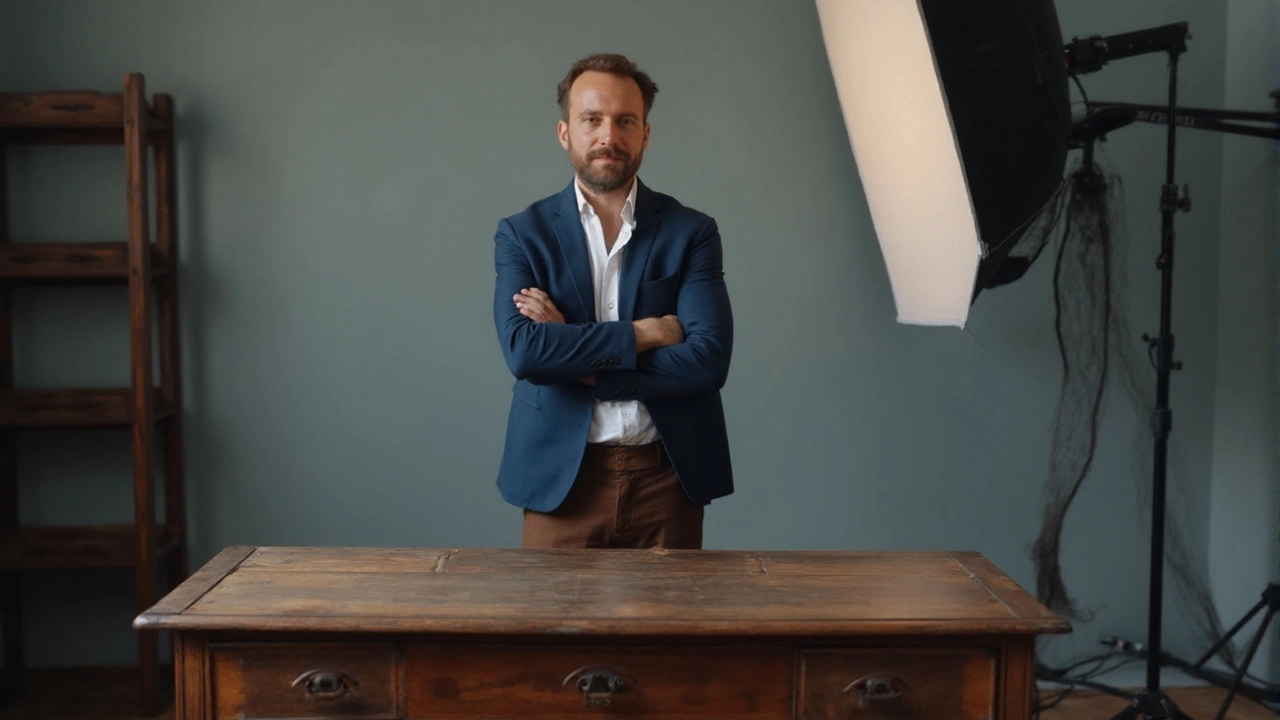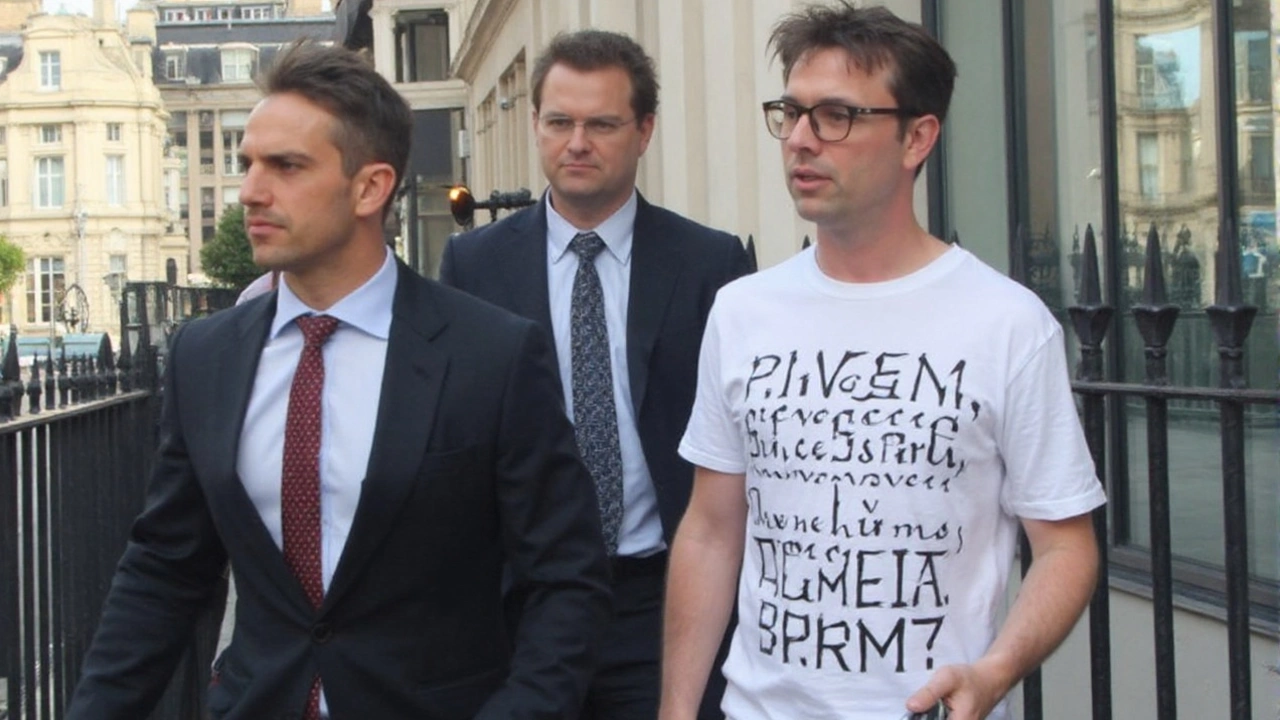Comedy writer detained after landing in London, then released on bail
Graham Linehan, the 57-year-old Irish comedy writer behind Father Ted, The IT Crowd, and Black Books, was arrested at Heathrow Airport on Monday on suspicion of inciting violence in social media posts about transgender people. He was detained by armed officers shortly after stepping off an American Airlines flight from Arizona at around 1pm, questioned, taken to hospital after a health scare, and later released on bail.
The Metropolitan Police said only that a man in his 50s was arrested on suspicion of offences linked to online posts. Linehan named himself in a post to subscribers on his newsletter platform and shared audio from the moment police confronted him at the gate. In the clip, an officer cites a post dated 19 April 2025 that was "deemed to be intended to stir up hatred and violence on the grounds of sexual orientation."
According to Linehan, five armed officers from the force’s aviation unit carried out the arrest. He said he was questioned about posts in which he asserted that trans women are men and suggested physical confrontation if women-only spaces could not be enforced by calling the police. He denies wrongdoing and describes the arrest as a free speech issue.
During questioning, Linehan’s blood pressure spiked to what he called "stroke territory." A nurse assessed him in custody and he was taken to an A&E department. Police confirmed his condition required hospital attention but said it was not life-threatening or life-changing. He was discharged and returned to custody before being granted bail.
His bail comes with one explicit condition: he cannot post on X (formerly Twitter) while the investigation continues. That restriction directly targets the platform where the alleged offences took place. No charging decision has been announced.
The arrest lands amid a heated national argument over speech, online harms, and how the UK polices hate and harassment. Within hours, politicians were weighing in. Conservative MP Claire Coutinho criticised the move, suggesting police are "arresting people for making jokes." Health Secretary Wes Streeting said he wants officers "on the streets rather than policing tweets" and signalled that ministers may revisit whether the law is being applied proportionately.
The posts at the centre of the case were made in April, a period when transgender policies were in the headlines. At the time, the Equality and Human Rights Commission and several public bodies were discussing or updating guidance on single-sex spaces and participation rules, and court rulings on sex and gender issues were widely debated. Linehan’s comments, which he says were about safeguarding and critics call targeted and demeaning, escalated fast across social media.
Linehan has long been a polarising figure on this subject. Supporters say he is blunt but speaks to concerns about women’s safety and single-sex spaces. Critics point to years of online hostility toward transgender people and say his posts cross the line into harassment and encourage harm. He has previously been suspended by social platforms, then reinstated, and has clashed with venues and event organisers over his appearances.

What police say, how the law works, and the political fallout
The Metropolitan Police have not released a charging sheet. The audio shared by Linehan is striking because it refers to stirring up hatred and violence “on the grounds of sexual orientation,” a category set out in the Public Order Act 1986. England and Wales have specific “stirring up hatred” offences for race and for religion and sexual orientation. There is not an equivalent offence for transgender identity, though other laws can apply, and hate motivation can be an aggravating factor at sentencing.
That matters because the legal test for "stirring up" offences is high: prosecutors normally need to show threatening or abusive material intended to stir up hatred. Separate laws cover inciting violence or encouraging crime more broadly, and communications offences address menacing or grossly offensive messages. Lawyers who follow this area say which statute prosecutors choose can decide the threshold they have to meet in court.
Online speech cases often turn on context: was the language targeted, did it call for action, and how likely was harm? British courts have repeatedly wrestled with the line between offensive opinion and criminal incitement. In 2021, the Court of Appeal curtailed police recording of “non-crime hate incidents” that chill speech, leading to new guidance from the College of Policing. But when speech veers into threats or encouragement of violence, the law gives officers less discretion.
In practical terms, a high-profile arrest at an airport is rare but not unprecedented. Heathrow falls under the Met’s Aviation Policing Command, which regularly handles arrests for offences detected in transit or flagged by other units. Armed officers are standard at major airports and may be tasked with detaining a suspect if there are concerns about flight risk, scene security, or public order.
Here’s what has happened so far:
- Monday, 1pm: Linehan lands from Arizona at Heathrow and is detained by armed Met officers.
- In custody: Officers question him about April 2025 posts on X; he releases audio of the arrest.
- Medical episode: A nurse sends him to A&E due to very high blood pressure; he is later discharged.
- Release: He is bailed with a condition barring him from posting on X while inquiries continue.
While police keep their statements limited during live investigations, the bail condition tells its own story. Bans on social posting are now common in online speech cases, especially when the alleged harm occurred on a specific platform. Breaching bail can trigger re-arrest and potentially affect any future sentencing if convicted.
Politics rushed in quickly. Coutinho framed the case as another example of overreach, echoing complaints that British policing is creeping into the realm of offence-taking and satire. Streeting tried a middle course: he stressed the need to enforce the law without turning the police into referees of social media discourse and suggested Parliament may need to check whether the balance is right.
The policy backdrop is tense. Gender recognition reform, women-only spaces, and sports participation have become fault lines in the UK culture war. Regulators and sports bodies have drawn up new rules, often restricting participation in female categories to people with male puberty suppressed or to birth sex, citing fairness and safety. Hospitals and prisons have reworked policies around risk and safeguarding. Each step has prompted fierce backlash from one side or the other.
Linehan’s April posts came in that moment. He has repeatedly said that trans women are men and argues that allowing them in women-only spaces endangers women. He insists he is arguing for protections. Opponents say that’s a cover for stoking hostility toward a minority and that normalising aggressive language invites harm, offline and online. The legal question in this case is whether any of his posts cross from protected expression into unlawful incitement.
Separately, Linehan is due at Westminster Magistrates’ Court this Thursday on charges that he harassed a transgender woman and damaged her phone, allegations he denies. That case is unrelated to the Heathrow arrest but adds legal pressure in a week when he was already set to appear before a judge.
The broader free speech debate is not new. After high-profile prosecutions involving offensive jokes and song lyrics in the 2010s, lawmakers tightened tests for criminal charges and prosecutors issued new guidance to weed out weaker cases. The Online Safety Act added duties for platforms but stopped short of criminalising broad categories of speech. Even so, activists on both sides accuse the other of trying to use the law to silence them.
What happens next is procedural. Detectives will download and review Linehan’s devices, pull the relevant posts and replies, and assemble a timeline. They will look at reach, reaction, and any pattern that suggests intent. The file then goes to the Crown Prosecution Service, which applies its two-stage test: is there a realistic prospect of conviction, and is prosecution in the public interest? That process can take weeks or months, especially in cases that raise sensitive public interest questions.
Expect more political noise in the meantime. Free speech campaigners will argue the police are criminalising opinion. Trans rights groups will say the law should protect people from calls to confront or intimidate them and that the threshold for intervention is already too high. Ministers will be pressed on whether to reform hate crime laws to cover gender identity in the same way as sexual orientation, or to narrow them to better protect speech.
Linehan’s public profile guarantees scrutiny. He once won awards for writing some of Britain’s most-loved sitcoms. In recent years he has been better known for a relentless and combative online presence. He has lost work, clashed with broadcasters and festivals, and turned to subscriber platforms to sustain his output. Supporters cast him as a whistleblower. Detractors call him an obsessive campaigner against a marginalised group.
Key questions now hang over the case. Does the evidence show intent to stir up hatred or encourage violence? Did the posts amount to advocacy of criminal acts or were they a grim form of rhetorical flourish? How will prosecutors square an audio reference to sexual orientation with posts focused on transgender people, a category not covered by the same “stirring up” law? Those answers will shape not only Linehan’s fate but also the next phase of the UK’s argument over speech and equality.
Until then, the bail condition keeps him off X. For a man whose public life plays out on that platform, that may be the most immediate consequence of the arrest. The longer-term consequences will be decided by prosecutors, and, if it goes that far, by a court.
